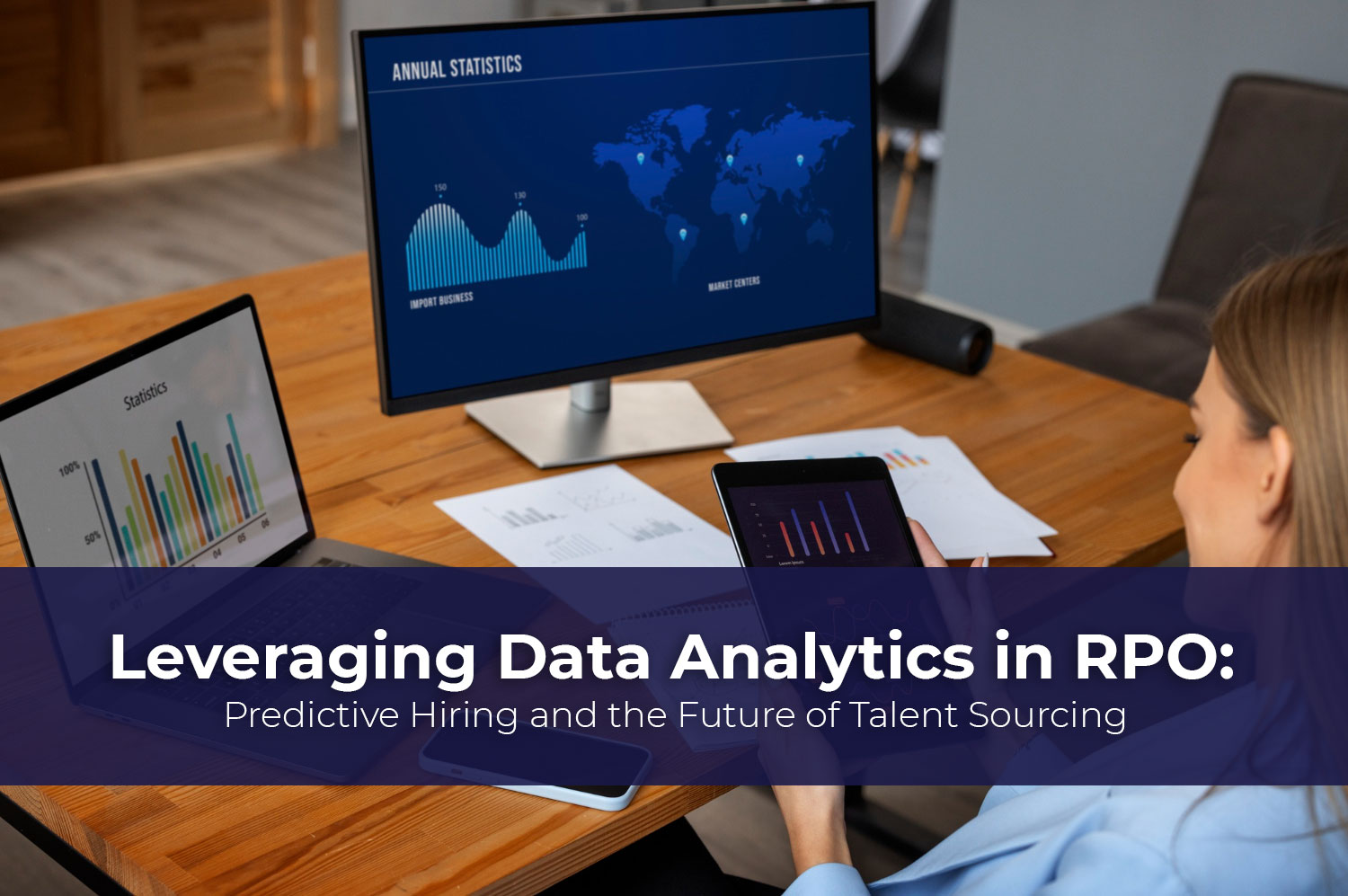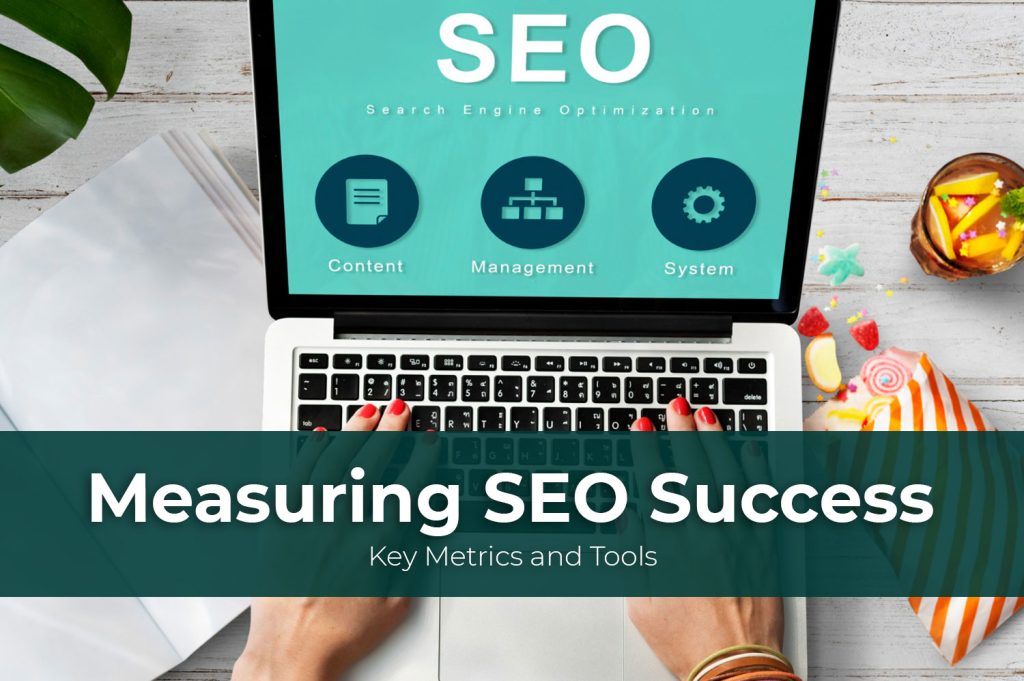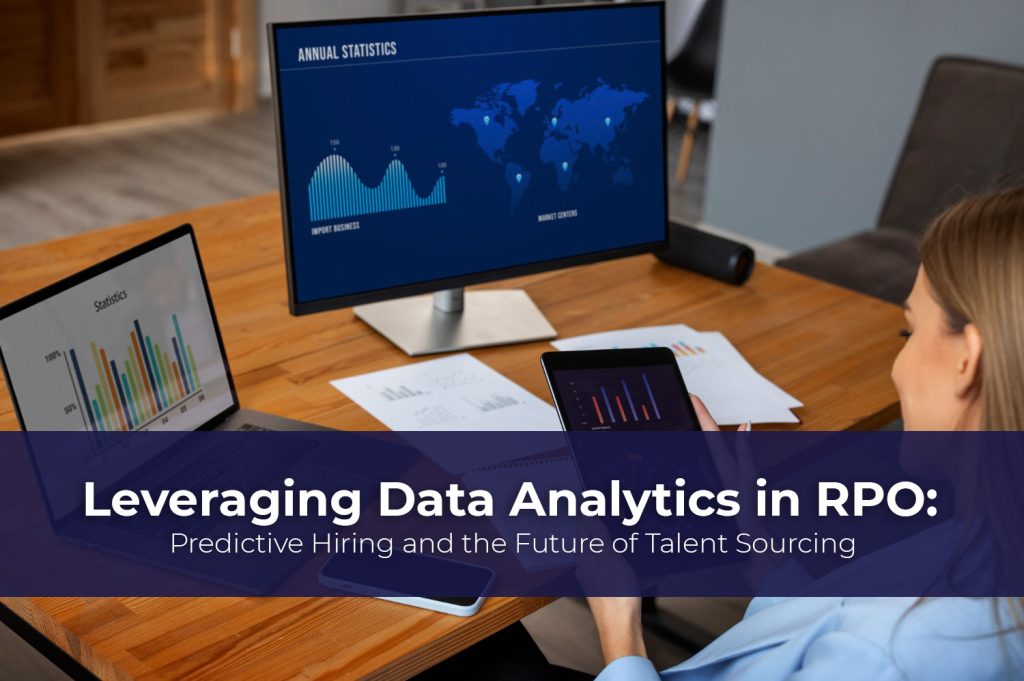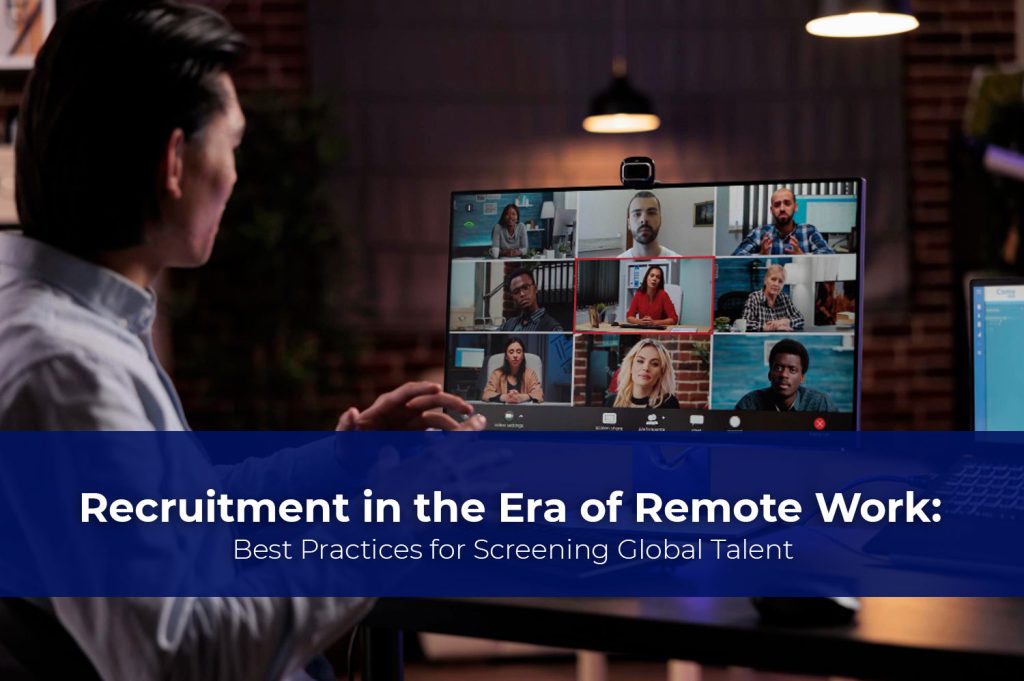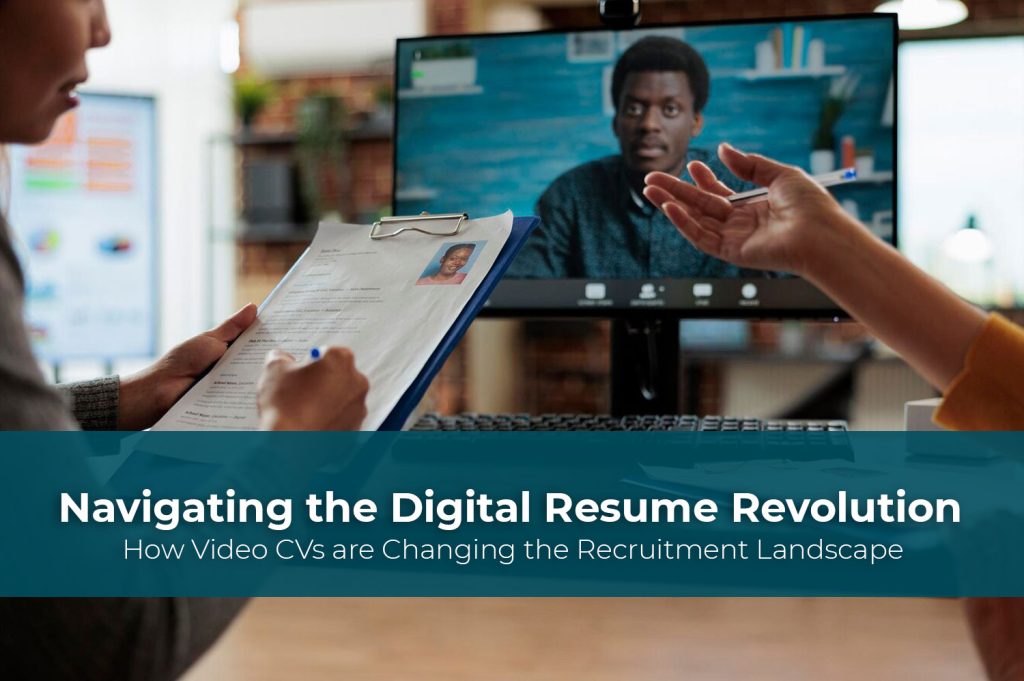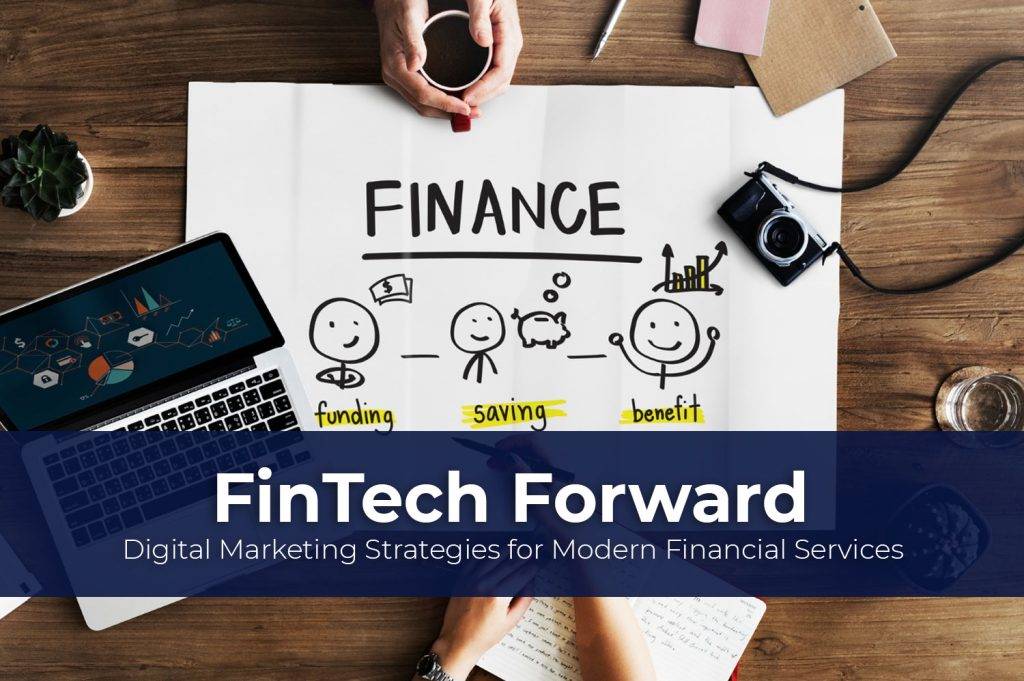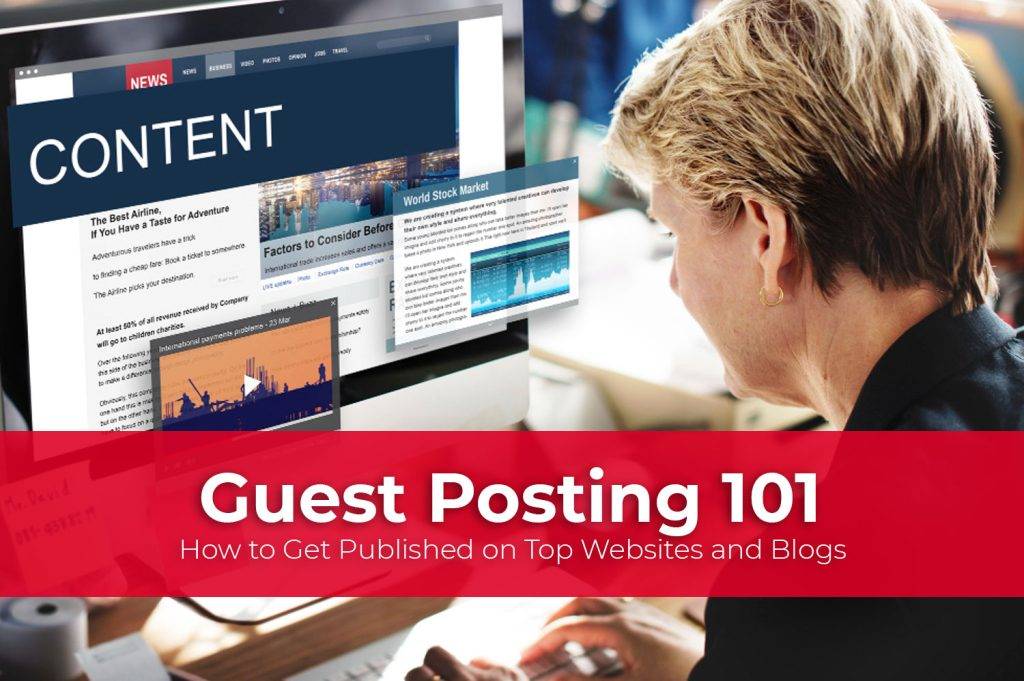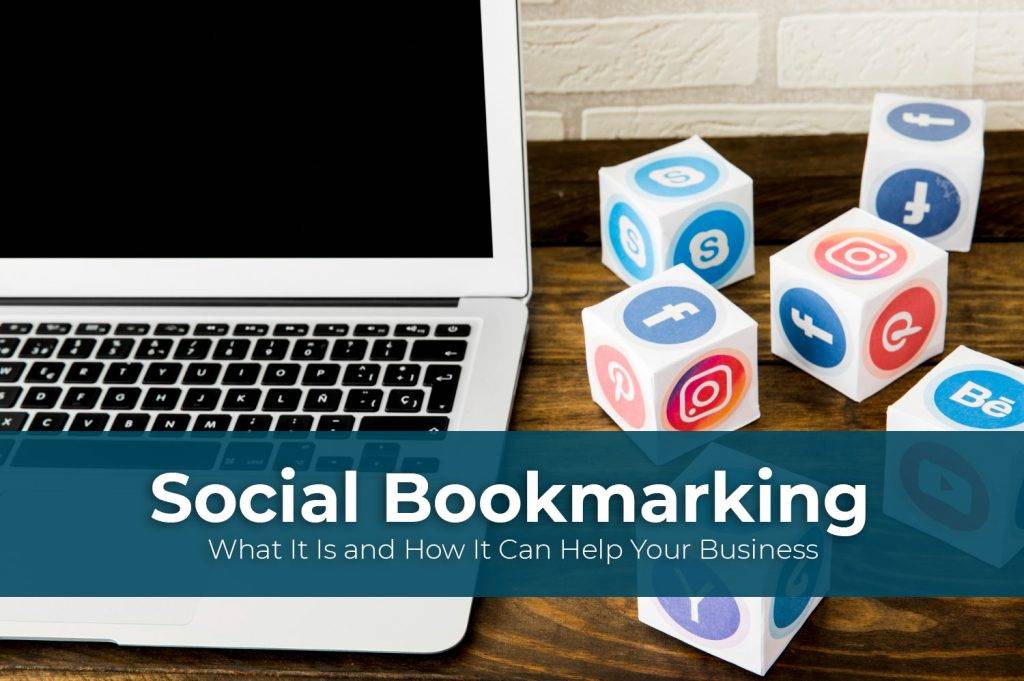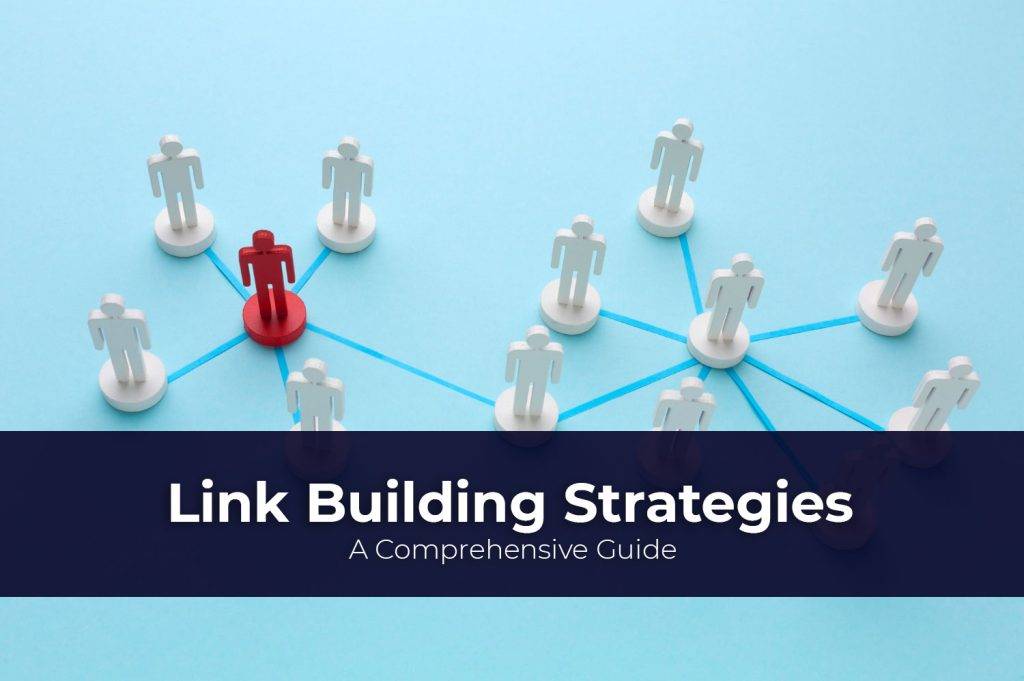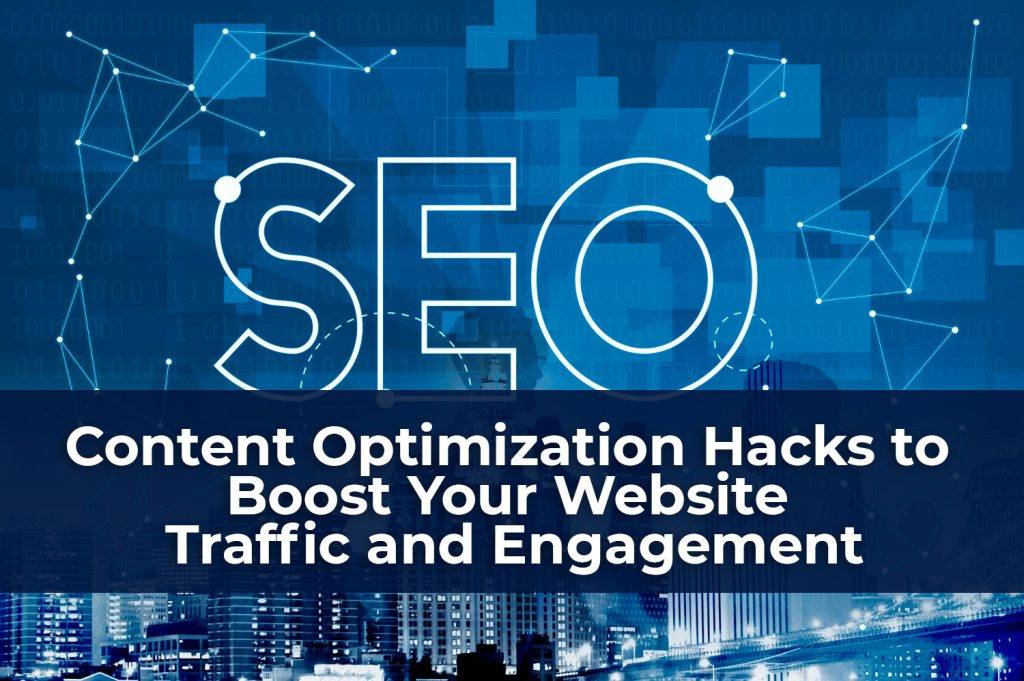In the dynamic landscape of Recruitment Process Outsourcing (RPO), the integration of data analytics marks a transformative era. This integration heralds a shift towards predictive hiring,
Continue readingWhy Recruiters Should Invest in Marketing Automation
Marketing automation can be useful to recruiters that operate in the online realm as it allows for more targeted marketing campaigns.
Continue reading7 Tricks to Get Recruiters to Notice You
In this day and age, recruiters and hiring managers come to you most of the time. But, competition is high, so how do you stand out? Read more…
Continue readingWhat Does Your Recruitment Process Say About Your Company?
The recruitment process is often the very first time that the majority of candidates would have ever come into contact with your business. So, what exactly does your first impression say?
Continue readingWhy Has Recruitment Become More Challenging Recently?
The recruitment business has become harder to execute over the past few years for a number of reasons. Here’s why that might be and what you can do to combat the challenges.
Continue readingAn In-Depth Look at the RPO Industry
To further gain an understanding of the direction in which the RPO Industry is headed, let’s take a look at how the system worked in the past, the latest trends.
Continue readingHow to Reorient Your Talent Acquisition Teams for Success
To win the race in today’s talent market, talent acquisition teams need to move away from reactive strategies and move to proactive ones. This will help companies win over top talent in the long-run.
Continue readingHow the HR and RPO Service Provider Can Build a Strong Working Relationship
How the HR and RPO Service Provider Can Build a Strong Working Relationship

“If everyone is moving forward together, then success takes care of itself.” – Henry Ford, American Industrialist
As a company entering into a partnership with an RPO service provider for the first time, your HR team and RPO partner must have a solid working relationship from the get-go. Handing a large part or the entirety of your recruitment operations to an outsourced entity can be a daunting move. Companies might choose to undertake RPO services for several reasons. However, no matter the reasoning, the result is often the same, i.e., change. This can be difficult at times. You might be afraid that you may lose control.
Having said that, being cautious of change is nothing out of the ordinary; it’s human nature. The foundation of this relationship will determine how well the partnership functions and to what degree it flourishes. To help you overcome some of the more common obstacles, here are our top five tips for building a strong working relationship between your HR team and the RPO service provider.
1) Communication between the HR and RPO Lays the Foundation
Communication is the cornerstone of any RPO partnership, even before you sign the contract. The first thing you want to do is gauge if you are indeed working with the right RPO service provider. Hence, it is always a good idea to start things off with a list of concerns that you would like addressed. The ability of the Recruitment Process Outsourcing firm to address this will tell you all you need to know.
This precedent also applies to the relationship between the RPO service provider and the internal HR team. Put some thought into how you want present and future communications to happen between the two. While email and phone calls are standard, in-person meetings are also necessary regularly. It plays an important role in the reconnection efforts and reminds all parties of the people on the other side of that email. Establishing the initial mandate for communication sets the tone, ensuring that the RPO partner is available at a moment’s notice. This is crucial in urgent situations.
Getting both the HR and the RPO partner on the same page can be a tricky process, but manageable with a little planning.

2) Commit to the RPO Way
One reason that companies take up RPO services is due to their expert ability to navigate the recruitment space. They are hired for their skills and processes. So, once you have partnered with an outsourcing agency, make sure that all your teams, including your HR, commit to the same. It is important to maintain consistency, especially when it is a new process. This will help prevent the introduction of confusion during the recruitment process.
It not only ensures that everyone is on the same page but also makes sure that your company is following the most streamlined approach possible. In the long run, this is exactly what you want to happen. While it may be hard to resist falling back on the old ways, try to keep the HR team from doing that to ensure the harmony of processes.
“Coming together is a beginning. Keeping together is progress. Working together is success.“ – Henry Ford, American Industrialist
3) Governance Is Needed Between HR and RPO
Now to continue somewhat along the same lines as the previous point, we need to address the issues that can arise with sudden change. The problem with initiating change is it can compartmentalize internal teams and cause them to work in silos. A good workaround for all this is having in place a detailed governance model, which can help introduce said change in manageable degrees.
A basic governance model will help determine the appropriate level of communication, what is discussed, meetings, and responsibilities. Such a document can also help establish a solid degree of accountability and keep both the HR and RPO partner on the same page. Think of it as a reference or guide that walks your business through the step-by-step changes that are to come.

Make sure that no matter what you aim for, that it is achievable.
4) Set Realistic Goals and Expectations
Few things are as disruptive to a business partnership as clashing expectations. To get your RPO service provider and HR team on the same page, set goals and benchmarks for both sides. However, when you are setting these KPIs, deliverables and metrics of measure, make sure that they are realistic.
After you launch the partnership and get into the swing of things, you can use feedback from candidates and clients, as well as reports from the HR and other internal teams to see how effectively these goals are being met. It will also show you where you need to make corrections to keep parameters realistic.
5) See Your RPO Provider as a True Partner
Once all the communication, documents and metrics are in place, it is time to launch the partnership. Keep in mind that things will only work out so long as you view your RPO service provider as a true business partner, instead of just another vendor. They are an extension of your HR team. Instilling this mindset from the beginning can help shape the foundation for the relationship between the RPO service provider and the HR personnel. Having said that, you need to understand that building such a relationship takes time, regardless of how long or in-depth you planned.
Recent Posts
Understanding Google’s Algorithm Updates and Their Impact on SEO
Measuring SEO Success: Key Metrics and Tools
Voice Search Optimization: Preparing for the Future of SEO
Staying Ahead in SMM: Emerging Social Media Platforms to Watch
Analyzing Social Media Metrics: What Matters Most?
Crafting a Winning Social Media Strategy: Tips for Businesses
Leveraging Data Analytics in RPO: Predictive Hiring and the Future of Talent Sourcing
The Age of Automation: Integrating AI and Chatbots in Talent Acquisition without Losing the Human Touch
Empowering Women in Leadership: Strategies for Gender-Balanced Recruitment
Recruitment in the Era of Remote Work: Best Practices for Screening Global Talent
Neurodiversity in the Workplace: How RPOs Can Lead the Charge for Inclusivity
Post-COVID Hiring: Adapting Recruitment Strategies for the New Normal
Sustainability in Recruitment: The Rise of Green Hiring Practices and Their Impact
Bridging the Gap: How RPOs are Addressing the Skill Mismatch in Today’s Workforce
Navigating the Digital Resume Revolution: How Video CVs are Changing the Recruitment Landscape
Canadian Criminal Record Checks Decoded: Top 7 FAQs Addressed
Tackling the Talent Pipeline: How Virtual Reality (VR) is Shaping Modern Recruitment
Building Digital Success: Marketing Strategies for Contractors
Pipeline Profits: Digital Marketing Strategies for Modern Plumbers
FinTech Forward: Digital Marketing Strategies for Modern Financial Services
Digital Dentistry Dynamics: Transforming Patient Acquisition through Online Marketing
Shaping the Future: The Strategic Advantage of Hiring for Potential over Experience
Guest Posting 101: How to Get Published on Top Websites and Blogs
Social Bookmarking: What It Is and How It Can Help Your Business
Link Building Strategies: A Comprehensive Guide
Unlocking the Power of Header Tags for SEO: Best Practices and Usage
Content Optimization Hacks to Boost Your Website Traffic and Engagement
The Ultimate Guide to Keyword Research : Tips, Tools, and Techniques
Mastering Online Advertising: The Power of Effective Callout Extensions
marketing security
The RPO Marketplace: Insights for Growth and Branding in 2022
The RPO Marketplace: Insights for Branding and Growth in 2022

“The most reliable way to predict your future is to create it.” – Abraham Lincoln, 16th President of the United States
An Overview of the RPO Marketplace
When the RPO marketplace was still in its infancy many companies pursued it as a means of reducing cost. What started out as an unstable, disorganized market rapidly grew into a go-to solution for corporate leaders. This was especially the case amidst the global economic crises of the early 2000s.
Following the dot-com boom, the budget for recruitment tightened and RPO agencies really began taking shape. Companies sought strategic and scalable partnerships with RPO agencies in hope of overcoming costly in-house recruitment solutions. By the time of the 2008 economic recession, RPO providers played a highly centralized role in the market and the adoption of their services gained plenty of popularity.
The Present State of the RPO Marketplace
With more and more companies moving towards the digital space post the pandemic and the availability of better technology, the RPO industry is primed for exponential growth. According to a market research report by Technavio, it was reported that the RPO marketplace would see an incremental growth of USD 3.2 billion from 2017 to 2022. In other words, the global market was expected to grow at an accelerated CAGR of 14% between 2018 and 2022. Interestingly enough, 41% of the overall growth is expected to be a contribution from the APAC (Asia-Pacific) region.
Keep in mind that when the market was still young, the relationship between clients and RPO partners was on thin ice at best. However, nowadays, due to better processes, advanced technology and more methodical approaches, clients are looking for more long-term partnerships within the RPO marketplace.
This bodes well for the growth of the industry and the businesses within. Having said that, let’s go over some trends in the RPO marketplace that you should probably watch out for in 2022 and the years to come.
Data and technology play a big role in the success that the RPO industry has seen in recent years.

1. Data Analytics and Artificial Intelligence (AI)
The use of data analytics and artificial intelligence is one of the rapidly rising trends in the global RPO market. These agencies analyze large quantities of data to fast-track the application procedure and help companies make more fluid recruitment decisions.
Things like analytical tools, people analytics, as well as recruitment analytics, play a crucial role in helping recruiters translate raw data into usable information. This information is used to recruit the best candidates. This is one such capability that is boosting the growth of the RPO marketplace.
2. Cost Reduction and Its Contribution to Growth of the RPO Marketplace
It’s just logical reasoning as to why companies seek out RPO firms and their services. They seek more cost-effective solutions that still retain a certain level of quality. Imbalances in the market can have a huge impact on the company’s financials. RPO agencies can help mitigate this by streamlining the hiring process and reducing these imbalances. This ability to effectively address these imbalances makes an RPO solution a desirable one.
“The future depends on what we do in the present.“ – Mahatma Gandhi, Freedom Fighter
3. The Growth of the APAC Region
As mentioned earlier, the APAC or Asia-Pacific region was touted to be one of the biggest contributors to the overall growth of the RPO industry in the years to come. We mentioned how it contributes a massive 41% to that.
It should also be noted that another report by Technavio stated that the RPO industry in this region is expected to reach a valuation of USD 1.08 billion between 2021 and 2025. This is an exceptional growth at a CAGR of around 14%. Fair to say, the RPO marketplace in the APAC region has a more than positive outlook in 2022.
4. The Fragmented Nature of the RPO Marketplace
The RPO market is a very fragmented one. This also makes it a highly competitive industry, be it global, national or regional. The presence of so many players in the market shows us that there is a high level of demand in the market that needs to be met, as evidenced by the growth projections. However, as good a sign as this is, you should keep a close eye on it and evaluate how to best overcome the growing rates of competition down the line.
5. Merit-based Recruitment Will Take a Front Seat in the Hiring Process
Now we come to the last item on the list of things contributing to the growth and demand of the RPO industry. When we consider RPO agency solutions, there is a clear diversion from traditional hiring processes. Instead of relying on heavily resume-based recruitment, the process focuses on the applicant’s skills, practical assessments and performance.
This eliminates a lot of bias and gives you a more fair assessment. This in turn gives you better outcomes in terms of candidate selection. Since this process is so unique to the RPO marketplace, it would explain why it is a contributing factor to the growth of the industry.

RPO agencies need to strike a balance of satisfying both clients and candidates in order to boost their brand.
How Is RPO Branding Strengthened?
Now, let’s have a look at some strengths that service providers can bank on going forward to boost their RPO brand. As the name suggests, the biggest weapon that the RPO service provider has is, well, their ability to recruit. Given the orientation of the industry demands, and the processes within RPO agencies, recruiters can focus on polishing their skills more and develop more organized approaches. This builds that RPO brand for the company. Quality, not quantity as they say.
Another thing that you have to consider is that this is partly due to the investment in the right recruitment tools and technology. It’s a self-feeding cycle. RPO agencies can invest in specific recruitment technology, training and tools as it will be an investment in their core competency as a service provider.
Keep in mind that even with all the most cutting-edge tech in the field, RPO agencies still need to produce results. This is what shows clients they are worth partnering with. This brings in a strong factor of accountability that clients can rely on. Another reason with which branding is built in the realm of outsourced recruitment is candidate experience. RPO agencies prioritize the candidate’s experience, ensuring that they have a good recruitment process experience. This ultimately reflects well on the client’s employer brand, which in turn boosts the RPO agency’s brand.
Recent Posts
Understanding Google’s Algorithm Updates and Their Impact on SEO
Measuring SEO Success: Key Metrics and Tools
Voice Search Optimization: Preparing for the Future of SEO
Staying Ahead in SMM: Emerging Social Media Platforms to Watch
Analyzing Social Media Metrics: What Matters Most?
Crafting a Winning Social Media Strategy: Tips for Businesses
Leveraging Data Analytics in RPO: Predictive Hiring and the Future of Talent Sourcing
The Age of Automation: Integrating AI and Chatbots in Talent Acquisition without Losing the Human Touch
Empowering Women in Leadership: Strategies for Gender-Balanced Recruitment
Recruitment in the Era of Remote Work: Best Practices for Screening Global Talent
Neurodiversity in the Workplace: How RPOs Can Lead the Charge for Inclusivity
Post-COVID Hiring: Adapting Recruitment Strategies for the New Normal
Sustainability in Recruitment: The Rise of Green Hiring Practices and Their Impact
Bridging the Gap: How RPOs are Addressing the Skill Mismatch in Today’s Workforce
Navigating the Digital Resume Revolution: How Video CVs are Changing the Recruitment Landscape
Canadian Criminal Record Checks Decoded: Top 7 FAQs Addressed
Tackling the Talent Pipeline: How Virtual Reality (VR) is Shaping Modern Recruitment
Building Digital Success: Marketing Strategies for Contractors
Pipeline Profits: Digital Marketing Strategies for Modern Plumbers
FinTech Forward: Digital Marketing Strategies for Modern Financial Services
Digital Dentistry Dynamics: Transforming Patient Acquisition through Online Marketing
Shaping the Future: The Strategic Advantage of Hiring for Potential over Experience
Guest Posting 101: How to Get Published on Top Websites and Blogs
Social Bookmarking: What It Is and How It Can Help Your Business
Link Building Strategies: A Comprehensive Guide
Unlocking the Power of Header Tags for SEO: Best Practices and Usage
Content Optimization Hacks to Boost Your Website Traffic and Engagement
The Ultimate Guide to Keyword Research : Tips, Tools, and Techniques
Mastering Online Advertising: The Power of Effective Callout Extensions
marketing security
RPO Industry: Top 9 Facts You Need To Know
RPO Industry: Top 9 Facts You Need To Know

“Information is not knowledge. The only source of knowledge is experience. You need experience to gain wisdom.” – Albert Einstein, Theoretical Physicist
Looking for expert support with a Recruitment Process Outsourcing (RPO) provider brings many benefits to a growing business. Businesses can outsource the task and responsibility of recruitment through an RPO solution. The RPO industry helps alleviate the burden of searching for high-quality candidates for a complex workforce. Here are 9 facts you need to know about the Recruitment Process Outsourcing industry:
1. Brand Representation Is a Top Priority in the RPO Industry
Your employment brand will be placed up front. While recruiting it is essential to make sure that your employment brand is presented well to all candidates that come your way. An RPO will make sure to understand the organization’s values so that they can convey a clear picture of your value proposition during the recruitment process.
2. You Get a Wide Range of Services
There are two categories that an RPO is classified into: Enterprise RPO and Segmented RPO. Enterprise RPO is a complete service solution where the RPO partner takes on all recruitment responsibilities for the organization. Segmented RPO splits the recruitment process between the company and the RPO partner.
3. Top Talent is Always a Priority
Organizations sometimes lack the expertise to recruit the best candidates for an open position, that’s where the RPO industry comes into play. Recruiters need to understand that the competition for top talent is fierce and an RPO service can help set you apart by getting the perfect candidate for the required role.
Critical analysis is a tool used by RPO providers to help companies decide the best course of action.

4. The RPO Industry Stays on Top of the Talent Market
RPOs keep track of the talent market scenarios and industry trends because the hiring process goes beyond exploring local geographies. An average Human Resources (HR) professional will find it difficult to match a candidate to the opportunity due to their lack of understanding of these trends. An RPO can fill the gaps that often get overlooked by the HR department.
5. Flexibility Is a Core Principle
The RPO industry provides flexibility that can relieve a business and allow you to focus on growth, assuring you the talent needed for success. Quick growth is a goal for many but it can become an issue when there is a demand for talent.
“Flexibility is the key to stability.” – John Wooden, American Basketball Coach
6. RPO Providers Help with Cost Reduction
One of the top reasons a business may look to top RPO companies to resolve their recruitment problems is because it reduces the cost of recruitment. Many companies spend a huge portion of their budget on hiring when they need to expand and grow. An RPO provider can reduce this cost by streamlining your recruitment process. They do this by showing you better ways to recruit the best talent with lesser money spent on the process.
7. RPO Industry and Critical Analysis Go Hand-in-Hand
In the area of critical analysis, an RPO provider can help a company decide the best course of action. An example of such a service is how to choose between permanent and temporary staff and estimate how long it will take to fill the position.

RPO industries are in a unique position to give businesses unique insights into the talent market.
8. Businesses Get Improved Recruitment Process Quality
Top recruitment outsourcing companies know that a great recruit is much more than a combination of experience and education. Personality, previous accomplishments, and many other factors play an important role in finding a suitable candidate for the open position. Hiring managers often miss out on covering these qualities due to a high volume of candidates to go through and time constraints. An RPO provider can look into these qualities while still looking for candidates.
9. Bonus Benefits of RPO Services
When companies employ RPO services they can access real-time recruiting dashboards, have an insight into the talent market, and pinpoint issues with supply and demand of the market. In this way, an RPO provider helps organizations with much more than just reducing the cost of finding suitable candidates.
